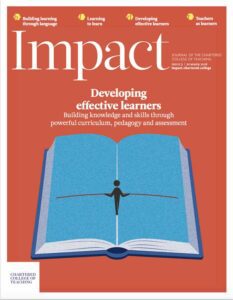Trusting the experts: The use of meta-analysis in education
Written by: Gary Jones

5 min read
One of the many challenges facing the evidence-informed teacher or school leader is knowing when to trust the experts (Willingham, 2012). Great importance is often ascribed to meta-analysis in the EEF’s Teaching and Learning Toolkit (for example, see (Teaching and Learning Toolkit, 2018)), and by influential commentators such as John Hattie (Hattie, 2008), and as such, has an impact on our understanding of what makes effective learning. When considering approaches such as metacognition, the evidence base for which draws heavily on meta-analysis, it is therefore essential for teachers and school leaders to be aware of the limitations of this approach to enable them to make appropriate use of research evidence.
Understanding meta-analysis
Meta-analyses are conducted as follows:
‘Individual studies report quantitative measures of the outcomes of particular interventions; meta-analysts collect studies in a given area, convert outcome measures to a common metric and combine those t
Join us or sign in now to view the rest of this page
You're viewing this site as a guest, which only allows you to view a limited amount of content.
To view this page and get access to all our resources, join the Chartered College of Teaching (it's free for trainee teachers and half price for ECTs) or log in if you're already a member.
This article was published in May 2018 and reflects the terminology and understanding of research and evidence in use at the time. Some terms and conclusions may no longer align with current standards. We encourage readers to approach the content with an understanding of this context.
0
0
votes
Please Rate this content
Subscribe
Please login to comment
0 Comments
Oldest
Newest
Most Voted
Inline Feedbacks
View all comments










